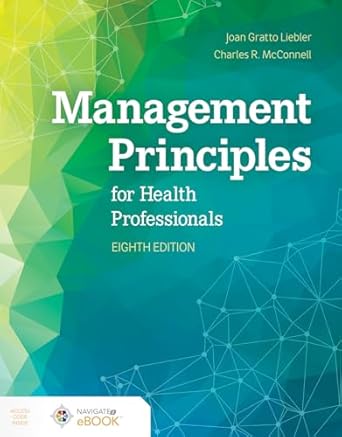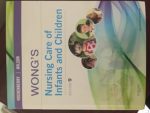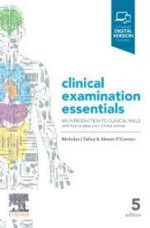Management Principles for Health Professionals is a practical guide for new or future practicing healthcare managers. The customary activities of the manager―planning, organizing, decision making, staffing, motivating, and budgeting―are succinctly defined, explained, and presented with detailed examples drawn from a variety of health care settings. Students will learn proven management concepts, techniques, models, and tools for managing individuals or teams with skill and ease.The Eighth Edition continues to present foundational principles of management in the context of contemporary health care. With timely coverage of such topics as medical cost sharing; use of robots; ER by appointment; increased use of observation units; renewed use of flextime staffing and scheduling; use of social media on the job, and more, this thoroughly updated text addresses the latest trends and issues that today’s health care manager is likely to encounter.Key Features- Presents 2 new tools ―The Manager’s Wheel Book and the Management Reference Portfolio ― to help new managers better understand their role and responsibilities and to aid existing managers in understanding their organization in detail- Covers managing care in a wide variety of health care settings (urgent care centers, specialty clinics, home care, etc.) outside of the traditional hospital setting.- Addresses technology and its impact, including eVisits/telemedicine, implementation of electronic health records, connectivity and the expectation that workers will respond during off hours via email and instant messaging, etc. – Offers expanded coverage on the importance and impact of corporate culture, the values of transparency and accountability, leadership style, and competitiveness.- Includes detailed examples of reports, plans, directives, union contracts, and more.
Management Principles for Health Professionals
KSh 7,420.00
Management Principles for Health Professionals is a practical guide for new or future practicing healthcare managers. The customary activities of the manager―planning, organizing, decision making, staffing, motivating, and budgeting―are succinctly defined, explained, and presented with detailed examples drawn from a variety of health care settings. Students will learn proven management concepts, techniques, models, and tools for managing individuals or teams with skill and ease.The Eighth Edition continues to present foundational principles of management in the context of contemporary health care. With timely coverage of such topics as medical cost sharing; use of robots; ER by appointment; increased use of observation units; renewed use of flextime staffing and scheduling; use of social media on the job, and more, this thoroughly updated text addresses the latest trends and issues that today’s health care manager is likely to encounter.Key Features- Presents 2 new tools ―The Manager’s Wheel Book and the Management Reference Portfolio ― to help new managers better understand their role and responsibilities and to aid existing managers in understanding their organization in detail- Covers managing care in a wide variety of health care settings (urgent care centers, specialty clinics, home care, etc.) outside of the traditional hospital setting.- Addresses technology and its impact, including eVisits/telemedicine, implementation of electronic health records, connectivity and the expectation that workers will respond during off hours via email and instant messaging, etc. – Offers expanded coverage on the importance and impact of corporate culture, the values of transparency and accountability, leadership style, and competitiveness.- Includes detailed examples of reports, plans, directives, union contracts, and more.
2 in stock
Related products
-
Guyton and Hall Textbook of Medical Physiology, International Edition, 14th Edition
KSh 13,300.00Known for its clear presentation style, single-author voice, and focus on content most relevant to clinical and pre-clinical students, Guyton and Hall Textbook of Medical Physiology, 14th Edition, employs a distinctive format to ensure maximum learning and retention of complex concepts. A larger font size emphasizes core information, while supporting information, including clinical examples, are detailed in smaller font and highlighted in pale blue – making it easy to quickly skim the essential text or pursue more in-depth study. This two-tone approach, along with other outstanding features, makes this bestselling text a favorite of students worldwide.Key Features-
- Offers a clinically oriented perspective written with the clinical and preclinical student in mind, bridging basic physiology with pathophysiology.
- Focuses on core material and how the body maintains homeostasis to remain healthy, emphasizing the important principles that will aid in later clinical decision making.
- Presents information in short chapters using a concise, readable voice that facilitates learning and retention.
- Contains more than 1,200 full-color drawings and diagrams – all carefully crafted to make physiology easier to understand.
- Features expanded clinical coverage including obesity, metabolic and cardiovascular disorders, Alzheimer’s disease, and other degenerative diseases.
- Includes online access to interactive figures, new audio of heart sounds, animations, self-assessment questions, and more.
- Enhanced eBook version included with purchase. Your enhanced eBook allows you to access all of the text, figures, and references from the book on a variety of devices.
-
-
Wong’s Nursing Care of Infants and Children, 9th Edition
KSh 9,660.00The most trusted authority in pediatric nursing, Wong’s Nursing Care of Infants and Children provides unmatched, comprehensive coverage of pediatric growth, development, and conditions. Its unique ‘age and stage’ approach covers child development and health promotion as well as specific health problems organized by age groups and body systems. Leading pediatric experts Dr. Marilyn Hockenberry and David Wilson provide an evidence-based, clinical perspective based on nearly 30 years of hands-on experience. Easy to read and extensively illustrated, this edition focuses on patient-centered outcomes and includes updates on topics such as the late preterm infant, immunizations, the H1N1 virus, and childhood obesity.
- A clear, straightforward writing style makes content easy to understand.
- Unique Evidence-Based Practice boxes help you apply both research and critical thought processes to support and guide the outcomes of nursing care.
- Unique Atraumatic Care boxes contain techniques for care that minimize pain, discomfort, or stress.
- Unique Critical Thinking exercises help you test and develop your own analytical skills.
- A unique focus on family content emphasizes the role and influence of the family in health and illness with a separate chapter, discussions throughout the text, and family-centered care boxes.
- Nursing Care Guidelines provide clear, step-by-step, detailed instructions on performing specific skills or procedures.
- Unique Emergency Treatment boxes serve as a quick reference for critical situations.
- Unique Cultural Awareness boxes highlight ways in which variations in beliefs and practices affect nursing care for children.
- A developmental approach identifies each stage of a child’s growth.
- Health promotion chapters emphasize principles of wellness and injury prevention for each age group.
- Student-friendly features include chapter outlines, learning objectives, key points, references, and related topics and electronic resources to help you study and review important content.
- A community focus helps you care for children outside the clinical setting.
- Nursing Care Plans include models for planning patient care, with nursing diagnoses, patient/family goals, nursing interventions/rationales, expected outcomes, and NIC and NOC guidelines.
- Nursing Tips include helpful hints and practical, clinical information, and Nursing Alerts provide critical information that must be considered in providing care.
- Unique! Quality patient outcomes are highlighted for major diseases and disorders, reflecting the QSEN focus on patient-centered outcomes.
- Pathophysiology reviews include special illustrations to explain complicated disease processes.
- Complementary & Alternative Therapy boxes include timely information on alternative medicine as a part of complete, comprehensive care.
- Research Focus boxes include the latest research impacting pediatric nursing today.
- Drug Alerts highlight important drug-related information for safe, appropriate care.
- Updates include coverage of hot topics such as the late preterm infant, immunizations, the H1N1 virus, and childhood obesity.
- Unique! Family-Centered Care boxes include features on family-related topics
-
Clinical Examination Essentials An Introduction to Clinical Skills (and how to pass your clinical exams)
KSh 7,000.00Talley and O’Connor’s Clinical Examination Essentials 5e provides an introduction to the skills required to successfully pass your clinical exams.
It offers tips on how to impress your examiners and highlights key steps in taking a history and conducting a physical examination. With practice these will become second nature, even under the stress of exam conditions.
We hope that Talley and O’Connor’s Clinical Examination Essentials inspires you to master your clinical skills and embark on a successful medical career. If you are looking to further develop your history taking and examination techniques, Talley and O’Connor’s Clinical Examination: A Systematic Guide to Physical Diagnosis provides greater detail
-
An Introduction to Forensic Genetics, 2nd Edition
KSh 16,198.00This is a completely revised edition of a comprehensive and popular introduction to the fast moving area of Forensic Genetics. The text begins with key concepts needed to fully appreciate the subject and moves on to examine the latest developments in the field. Now illustrated in full colour throughout, this accessible textbook includes numerous references to relevant casework. With information on the full process of DNA evidence from collection at the scene of a crime to presentation in a legal context this book provides a complete overview of the field.
Key Features:
- Greater in-depth coverage of kinship problems now covered in two separate chapters: one dealing with relationships between living individuals and the other covering identification of human remains.
- New chapter on non-human forensic genetics, including identification of bacteria and viruses, animals and plants.
-
Pocket Tutor Orthopaedics
KSh 5,500.00Titles in the Pocket Tutor series give practical guidance on subjects that medical students and foundation doctors need help with “on the go”, at a highly affordable price that puts them within reach of those rotating through modular courses or working on attachment.
- Common investigations (ECG, imaging, etc)
- Clinical skills (patient examination, etc.)
- Clinical specialties that students perceive as too small to merit a textbook (psychiatry, renal medicine)
Key points
- Practical, accessible introduction to a subject that students find daunting, but which juniors will encounter as part of orthopaedic and emergency rotations
- Logical, sequential content: relevant basic science; then chapters devoted to the clinical essentials of orthopaedics and the disorders and injuries seen most commonly in practice
- Descriptions of common disorders are enhanced by Clinical Scenarios (Patient presents with…), which help students and trainees to recognise and manage common presenting problems
-
Oxford Handbook of Clinical Specialties (Oxford Medical Handbooks
KSh 6,580.00Now in its 25th year, the Oxford Handbook of Clinical Specialties has been revised and updated by a trusted author team to bring you practical, up-to-date clinical advice and a unique outlook on the practice of medicine. Twelve books in one, this is the ultimate guide to the core clinical
specialties for students, junior doctors, and specialists.This edition features a new and improved referencing system guided by a team of junior doctors, ensuring that the text is packed with valuable references to the most salient data and guidelines across the specialties. Each chapter has been updated on the advice of a team of specialists, to bring you
everything you need for any eventuality on the ward or in the field. This essential handbook guides the reader through the management of an unprecedented spectrum of conditions and eventualties, from sexual health to major incident management. Compact and filled with high quality artwork, directions
to further reading, and wise advice, this book is an ideal resource for revision and reference on the go.With its companion volume, the Oxford Handbook of Clinical Medicine, the Oxford Handbook of Clinical Specialties offers a unique perspective on the practice of medicine. Filled with wit, wisdom, and humanity, this book draws on literature, history, and personal experience to teach a philosophy of
medicine that always puts the patient at the centre of compassionate care. It is a trustworthy companion for anyone with the spirit of self-improvement and a passion for their practice. -
Introduction to Epidemiology
KSh 4,820.00Recognized by Book Authority as one of the best Public Health books of all time, Introduction to Epidemiology is a comprehensive, reader-friendly introduction to this exciting field. Designed for students with minimal training in the biomedical sciences and statistics, this full-color text emphasizes the application of the basic principles of epidemiology according to person, place, and time factors in order to solve current, often unexpected, and serious public health problems.Students will learn how to identify and describe public health problems, formulate research hypotheses, select appropriate research study designs, manage and analyze epidemiologic data, interpret and apply results in preventing and controlling disease and health-related events. With real-world examples in the form of case studies and news files in each chapter, Introduction to Epidemiology is an accessible and effective approach to learning epidemiology.The Eighth Edition features:- Same organization as the prior edition allowing for easier transition- New or expanded coverage of the models of causation, methods of age adjustment, age-period cohort models, incubation and latency periods, and receiver operating characteristic (ROC) curves- Clearer connection between statistical inference and causal inference- New and updated practical examples and News Files help solidify concepts and show real-world application- Updated tables and figures throughout- Access to Navigate 2 online learning materials, including a comprehensive and interactive eBook, student practice activities and assessments, learning analytics reporting tools, and more- A built-in adaptive learning feature enables students to take self-assessments before or after reading a chapter. Based on their performance they can map out their own custom study plan that directs them to the areas of the text to review.
-
Management Principles for Health Professionals
KSh 7,420.00Management Principles for Health Professionals is a practical guide for new or future practicing healthcare managers. The customary activities of the manager―planning, organizing, decision making, staffing, motivating, and budgeting―are succinctly defined, explained, and presented with detailed examples drawn from a variety of health care settings. Students will learn proven management concepts, techniques, models, and tools for managing individuals or teams with skill and ease. The Eighth Edition continues to present foundational principles of management in the context of contemporary health care. With timely coverage of such topics as medical cost sharing; use of robots; ER by appointment; increased use of observation units; renewed use of flextime staffing and scheduling; use of social media on the job, and more, this thoroughly updated text addresses the latest trends and issues that today’s health care manager is likely to encounter. Key Features – Presents 2 new tools ―The Manager’s Wheel Book and the Management Reference Portfolio ― to help new managers better understand their role and responsibilities and to aid existing managers in understanding their organization in detail – Covers managing care in a wide variety of health care settings (urgent care centers, specialty clinics, home care, etc.) outside of the traditional hospital setting. – Addresses technology and its impact, including eVisits/telemedicine, implementation of electronic health records, connectivity and the expectation that workers will respond during off hours via email and instant messaging, etc. – Offers expanded coverage on the importance and impact of corporate culture, the values of transparency and accountability, leadership style, and competitiveness. – Includes detailed examples of reports, plans, directives, union contracts, and more.










Be the first to review “Management Principles for Health Professionals”